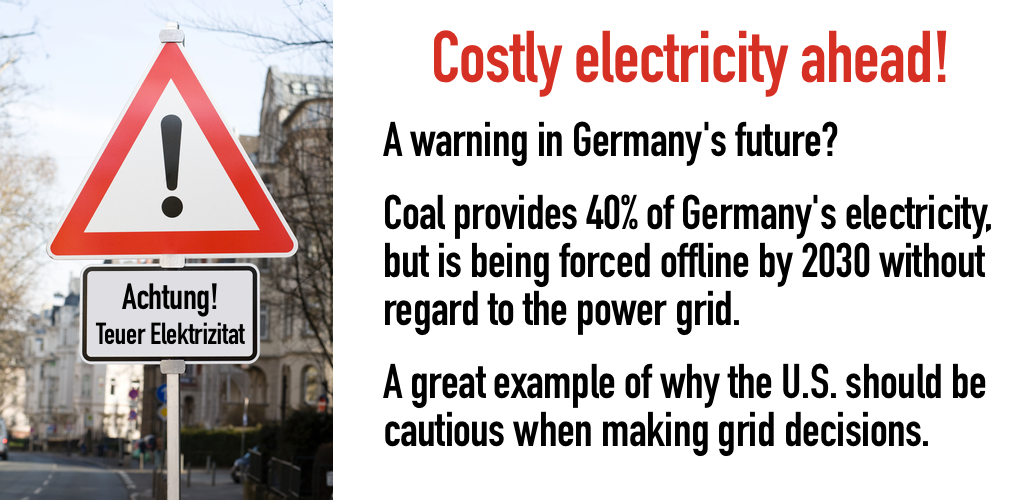
Rhine Whine
November 21, 2017
Of all the column inches written from Bonn last week, New York Times reporter Brad Plumer (Nov. 18) may have underscored the biggest significance. German chancellor Angela Merkel acknowledged that the developed world’s clean energy leader would likely fail to honor its ambitious emissions reduction pledge.
There are at least two ways to read this. First, contrary to the setup narrative, it wasn’t the recalcitrant Trump Administration that was the skunk at the picnic. By most accounts from their peers, team America behaved constructively and professionally. Rather it was host Germany and the realization that its ambitious “Energiewende” – its bold commitment to renewable fuels – would not bring Europe’s biggest, richest economy into compliance. If not Germany, what chance would less fortunate countries have to meet their pledges?
It turns out Germany relies on coal for a greater share of its electricity generation (40%) than the pariah USA (31%). Phasing out Deutschland’s stubborn reliance on lignite coal would require “tough decisions,” said German president Angela Merkel. What makes them so tough are the irreconcilable differences between her party’s minority green and business allies about the costs and benefits of the country’s energy transformation. These differences helped to doom her efforts to form a new government this week.
This is the other way to look at Germany’s sober announcement in Bonn. As a cautionary tale about a too hasty abandonment of traditional power sources that leads to economic inefficiencies and political disruption.
Germans spent $26 billion last year alone on renewable energy, paid for largely by a surcharge on households. Since its enactment in 2007, the tariff has driven up the average family’s cost of electricity by 50%. Long-term subsidies to renewable fuels force unwanted electricity into a market that can’t use it, collapsing wholesale prices that make nuclear power and natural gas uneconomic.
At the same time the country has decided it doesn’t need baseload power. It abandoned nuclear power owing to safety concerns after Fukashima, and plans to phase out coal by 2030 out of environmental concerns after the Paris Accord. How to compensate utilities for stranded assets has challenged policymakers.
The result of energy transformation has left a new risk in its wake – the risk from a costlier, less diverse grid.
And still Germany will fall far short of its 40% emissions reduction goal by 2020. In fact, its carbon emissions haven’t declined for nearly a decade, while this year’s emissions are set to resume their climb after a brief hiatus.
Faced with this stark result, some turned to PR. Nineteen countries cobbled together the “Powering Past Coal Alliance.” That only added to the impression of climate posturing since they collectively account for less than 3 percent of global coal consumption. Denmark lecturing the Ruhr Valley recalls the king who boasts that all his subjects are equal under the law: neither nobles nor peasants may sleep under bridges.
Ignoring the sobering lesson from Germany’s experience, the World Resources Institute blamed Bonn’s underwhelming progress on the Trump Administration that “lives in an alternative universe.” But Germany’s experience begs the question: who is living in an alternative universe?
Maybe more impressive progress can be achieved with more realistic expectations about the pace of renewable growth and the transition away from baseload power sources. The flaw in the ointment is less the carbon reduction goal than the chosen means to reach it.
Aggressive investments in advanced coal technologies, and faster deployment and testing to reduce their costs for countries that will continue to use coal, is realpolitik that is needed for a real-world solution.
- On November 21, 2017
